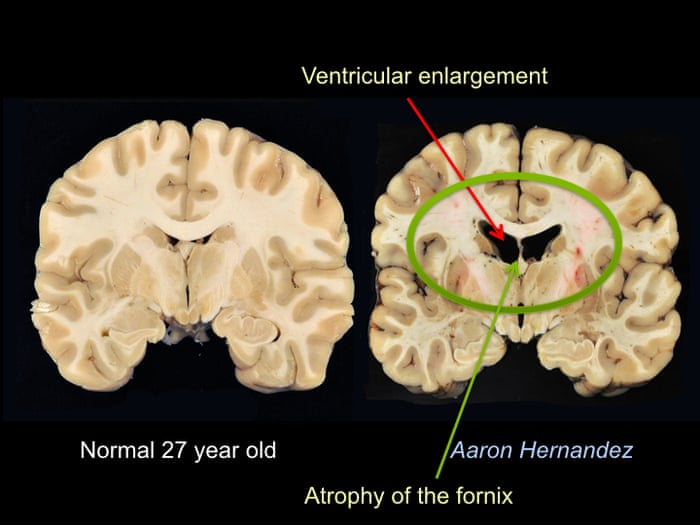I love football. I grew up a 49ers fan, my best friends played football throughout middle and high school, switched to the Packers as an adult (Go Pack Go!), and fell in love with the Hawkeyes while I attended college at the University of Iowa. When I became a teacher, I went to every football game, hosted pregame meals in my classroom, and talked about the game in the hallways to any and all students who would listen.
I knew about CTE (Chronic Traumatic Encephalopathy). The great Junior Seau had commited suicide while I was in college. In September of 2015, my favorite football player while I was a college student, one that I had bought the #9 jersey of, Tyler Sash, died at the age of 27. The cause of death? Mixture of drugs. But that didn’t sit well with any of us Hawkeye fans. Five months later it was revealed that he was in Stage 2 of CTE with comparable damage to that of Junior Seau who died at 43.
“Early symptoms of CTE usually appear in a patient’s late 20s or 30s, and affect a patient’s mood and behavior. Some common changes seen include impulse control problems, aggression, depression, and paranoia. As the disease progresses, some patients may experience problems with thinking and memory, including memory loss, confusion, impaired judgment, and eventually progressive dementia. Cognitive symptoms tend to appear later than mood and behavioral symptoms, and generally first appear in a patient’s 40s or 50s. Patients may exhibit one or both symptom clusters. In some cases, symptoms worsen with time (even if the patient suffers no additional head impacts). In other cases, symptoms may be stable for years before worsening” (www.concussionfoundation.org).
In April of 2017, Aaron Hernandez, former Florida Gator and New England Patriot powerhouse, convicted of murder, was found dead in his jail cell. About five months later, it was revealed that he was in stage 3 of CTE with damage well beyond was could be expected for someone his age. The Netflix documentary “Killer Inside: The Mind of Aaron Hernandez” did a great job of highlighting his struggles including CTE.
 This blog is not about defending Aaron Hernandez who committed crimes that are unimaginable. This is not a eulogy for a player that I thought was the King of Iowa. This is not a plea for football to be eradicated. This blog is about voicing and exploring the moral implications of being a lover of football and seeing grave consequences of the game. If repeated hits to the head do the damage then this is something that has to be talked about when we are educators of the youth that are receiving these hits. How do you talk to your own children about this? How do we talk to our students about this? Do we not talk about it? Is it too personal? These are the types of things that our students should be exploring for themselves in our religious studies curriculum and in their education as young adults.
This blog is not about defending Aaron Hernandez who committed crimes that are unimaginable. This is not a eulogy for a player that I thought was the King of Iowa. This is not a plea for football to be eradicated. This blog is about voicing and exploring the moral implications of being a lover of football and seeing grave consequences of the game. If repeated hits to the head do the damage then this is something that has to be talked about when we are educators of the youth that are receiving these hits. How do you talk to your own children about this? How do we talk to our students about this? Do we not talk about it? Is it too personal? These are the types of things that our students should be exploring for themselves in our religious studies curriculum and in their education as young adults.
A former student, now friend, is a current D1 football player who jokes about CTE that he will endure when older in order to cope with the reality that he, his teammates, and brothers might have a fate that is dark.
An acquaintance who currently plays for the Houston Texans told me, “I know all about CTE but I love football so I am willing to deal with the consequences.”
I love football. But a little piece of my heart breaks when I watch football because I know that there are consequences of the game that I can’t predict but that I know for a fact will be devastating.
